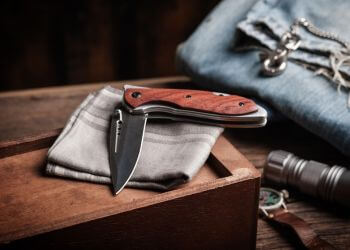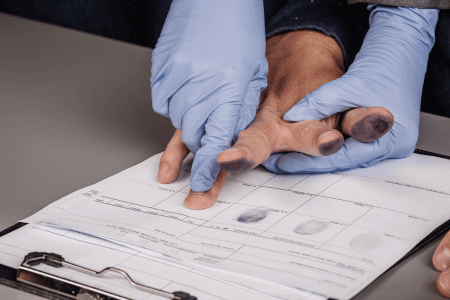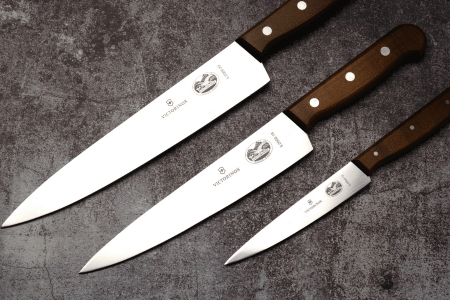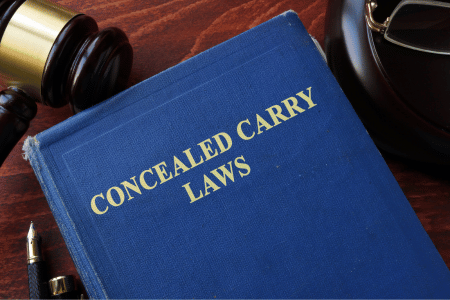Knives are helpful in many situations, such as when sharpening a stick on a hiking trip, cutting or peeling a piece of fruit on a picnic, or dressing fish or game while hunting or fishing. However, even as useful as a knife can be, it’s also potentially a deadly weapon in the hands of a criminal, which is why there are regulations in the Sunshine State about which kinds of knives are legal to own, carry, and concealed carry. Knife laws in Florida are more permissive than most other states, but if you want to own, buy or sell, or carry a knife, it’s important to understand how these laws work. If you are in a situation involving Florida knife laws, consult a skilled criminal defense lawyer.
Each state sets its own laws regarding the type of knives legally permitted to be owned and sold and how the knife owner can carry them.
Knife laws in Florida vary according to the type of blade a knife has, how it’s carried, and the purpose of the knife. Different types of knives have different regulations for carrying and possession.
Florida Revised Statutes Section 790.06 covers what kinds of knives are permitted and which are not. It also notes that people who wish to carry a knife as a concealed weapon must have a permit to do so. Failure to have a license for concealed carry may be either a felony or a misdemeanor, depending on the circumstances and type of knife.
The only exception to the requirement for a concealed carry permit is a pocket knife.
The 1997 case, L.B. v. State of Florida, 700 So. 2d 370, sets forth the definition of a common pocket knife, the conditions it can be carried under, and where it may and may not be taken.

Pocket knives are considered folding blade knives — knives whose blades are folded into the knife’s handle and are designed to be manually opened with a thumb or finger.
Florida’s attorney general determined that a common pocket knife had four inches long or less blade in 1951. The state has not changed that definition.
Pocket knife laws in Florida permit you to carry a folding knife or a tool with a folding knife, like a Swiss Army Knife, on your person without a concealed carry permit as long as the blade is under four inches. Otherwise, the laws pertaining to unlawful concealed carry apply.
Fixed-blade knives are just as the name sounds – knives whose blades are fixed in place and not folded into the handle or automatically retracted. Kitchen knives or hunting knives are good examples of fixed-blade knives. These knives typically have a sheath for safety.
It’s legal to own and carry a fixed-blade knife in Florida, per their fixed-blade knife laws, as long as you are openly carrying the knife, like on your belt in its sheath. However, if the blade is longer than four inches, you will need a permit for concealed carry of the knife, per Florida concealed carry laws.
Concealed carry knife laws in Florida are covered under Florida Statute § 790.06 (2018). It lists knives as weapons, so all the concealed carry permitting requirements and licensing regulations apply to people carrying a concealed knife, except for a pocket knife.

The concealed carry provisions apply only to knives considered deadly weapons, per State v. Holley, 480 So. 2d 94, decided by the Florida Supreme Court in 2004. Deadly weapons are designed to cause harm, versus knives designed for utility, like a box cutter or razor.
To obtain a permit for concealed carry, you must apply with the Florida Department of Agriculture and Consumer Services (FDACS). Requirements to obtain a concealed carry permit include:
Some counties require you to complete a psychological exam to ensure you’re of good moral character and judgment. You can make an appointment for a concealed carry permit at any tax collections office or FDACS regional office.
Minors are prohibited from carrying anything other than a pocket knife (with parental permission). Furthermore, anyone who furnishes a knife to a minor may face misdemeanor charges.
Minors aren’t the only people who cannot possess a knife. Persons considered of unsound mind are also prohibited from owning or possessing a knife that’s considered a deadly weapon.
Automatic knife laws in Florida define an automatic knife as one that contains the blade inside the handle, deployed by a spring. These are commonly called switchblades. Automatic knives are permitted in Florida, as long as they aren’t ballistic knives, in which the blade completely detaches from the handle and can be fired like a projectile.
Possession of an automatic knife falls under the same requirements as a fixed or folding blade knife. Any automatic knife with a blade over four inches is considered a deadly weapon, so you must be permitted to carry one concealed. However, it’s legal to carry an automatic knife openly.
Balisong knives, commonly called “butterfly” knives, are a specific type of folding knife in which the handle is split into two pieces, rotating around the tang to contain the blade within the two handles when not in use.
Because butterfly knife laws in Florida define a butterfly knife as a type of folding knife, they are legal in Florida, although subject to the same concealed carry licensing requirements as all other folding knives with blades longer than four inches.

When it comes to open-carry knife laws in Florida, Florida permits open carry, possession, and selling or purchasing of any type of knife other than a ballistic knife, which means hunting knives, military-style knives like a K-bar, or even swords may be owned by Floridians.
However, knife length laws in Florida set a certain length for knives that can be concealed and carried without a permit. Blades shorter than four inches, like those of a pen knife or pocket knife, can be concealed on your person or in a bag or purse without a permit.
If you wish to carry a concealed knife with a blade longer than four inches, you will need a deadly weapon concealed carry permit.
Even with a permit — or if you are openly carrying a knife without a permit — there are still certain places where you may not carry a knife, including:
This applies to students, parents, and anyone on school property or at a school-sponsored event. If you are found to have a knife other than a common pocket knife (with a blade less than four inches), then you may be charged with a third-degree felony, which is punishable by up to five years in jail.
Other places you may not carry a knife with a blade longer than four inches (licensed or not) include:
You also cannot carry a deadly weapon in any place where federal law prohibits weapons.
Statute 790.1 of Title XLVI (Crimes), Weapons and Firearms, 2018 Florida Statutes, covers concealed carry laws in the Sunshine State. A knife with a blade longer than four inches and not a quality knife, like a box cutter, razor, or multi-tool, is considered a deadly weapon in Florida.
If you wish to conceal a deadly weapon, you need a permit. The same restrictions on who is allowed to have a concealed carry permit for a gun are the same as those for a knife or any other deadly weapon. You cannot apply for a concealed carry permit if you are under 21 or a convicted felon.
The only people exempt from the permitting requirements are members of the U.S. Armed Forces and military veterans who received an honorable discharge.
If you conceal carry without a permit, you could face a first-degree misdemeanor, which carries penalties of up to a year in jail and a maximum fine of $1,000. You may also be placed on probation after you get out of jail.

Open carry of a deadly weapon, including a non-utility knife with a blade longer than four inches, is permitted for anyone over 18 in Florida. If your knife is legal to own in Florida — anything other than a ballistic knife — then you may openly carry it on your person.
It’s important to note that most fixed-blade knives come with sheaths, but a knife in its sheath is not considered concealed carry if it is visible.
Open carry of a knife is still illegal in any place where you are not permitted to carry a deadly weapon, like police stations, schools, airports, and many government buildings.
Contacting an experienced criminal defense attorney is crucial if you face weapons charges. Depending on your charge, you could face a third-degree felony, which means jail time and hundreds of dollars in fines.
Contacting a lawyer ensures you have an advocate who understands Florida knife laws and their common law interpretations. Common law interpretations are cases that set a precedent for interpreting the laws. Yo lawyer provides advice on your citation and works hard to get your charges dismissed or reduced.
When you work with a criminal defense attorney from The Denson Firm, you’ll have representation from the time you’re arrested through court hearings, arraignment, and trial. We can also negotiate a plea arrangement with the prosecutor, where you can plea to a lesser charge to avoid felony jail time.
Our criminal defense lawyers at The Denson Firm have decades of combined experience defending clients against weapons charges in Florida, and we can help you. Contact us today to schedule a consultation with a skilled criminal lawyer.